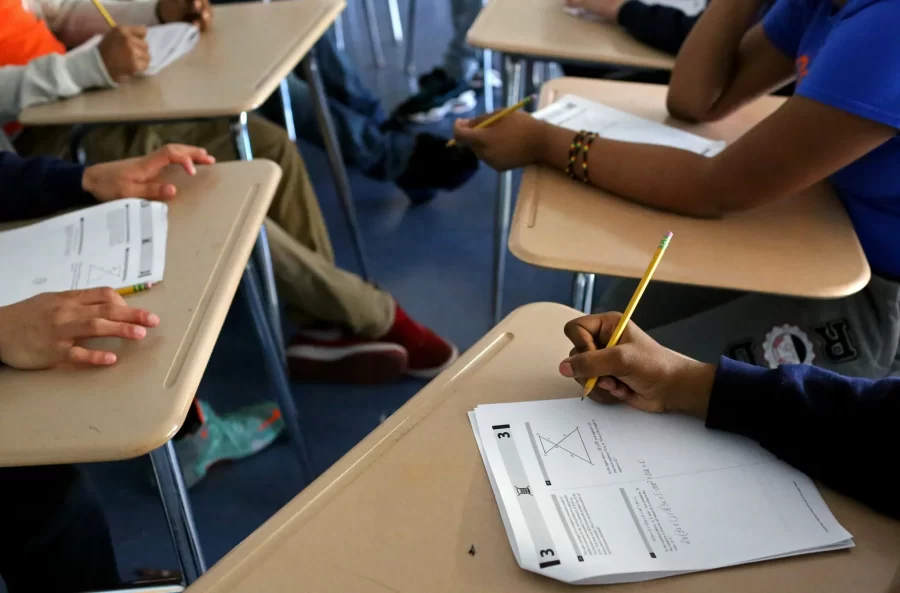Support Students Taking the SAT
The College Board frequently undergoes drastic changes. One of the most recent is an alteration to the SAT, a standardized paper and pencil-based test administered to schools nationwide. By March 2024, schools across the country will transition to a completely digital testing format. The College Board has been providing information in order to support schools and students with the transition process. Thus, Boston Latin School must do the same and use its assets to provide additional SAT prep workshops and resources to alleviate any apprehension regarding the new format, providing students with the necessary support for a smoother transition.
Colleges use the SAT to assess applicants’ strengths and readiness for college work. Currently, the SAT is a three-hour and 50 minute exam consisting of four sections: Reading, Writing and Language, Math without calculator and Math with calculator. Mr. Steven Chen, Assistant Head of School, states, “The SAT transitioning into an all digital format follows the trend that most testing is going into now.” With the current redesign, however, students will be given 64 minutes for the Reading and Writing section and 70 minutes for the Math sections for a total of 2 hours and 14 minutes. Calculators will be allowed at all times during the Math section, and the Reading section will consist of shorter reading passages covering various topics. Furthermore, the digital SAT will be adaptive, meaning the difficulty of the questions will change as students take the test.
Despite the SAT becoming more streamlined, students would greatly benefit from additional support. Over the course of the next year, students will need to become accustomed to the new style. The most effective way to ensure this is to provide students with workshops that cover the new format and strategies that will best prepare students for the test. Although a college preparatory curriculum does help BLS students excel in many aspects, students often have different experiences with standardized testing.
As Graham Owens (I) says, “The college preparatory curriculum doesn’t directly prepare you [for the SAT], because you are not doing any SAT practice tests in class.” For some students, class content does not suffice in effectively preparing them for the SAT.
Many students at BLS are overwhelmed and stressed with tests, sports, clubs and other commitments. Even though the digital SAT has a more simple format, students will feel extreme pressure and anxiety knowing that they are expected to adjust and excel given these new circumstances.
These SAT prep workshops could potentially be administered via the BLS National Honor Society (NHS). One of the main pillars of the NHS is service. The organization stresses that its members will continue to demonstrate their character by providing services to the school and the larger community.
KC Kirby (I) suggests, “[This] could be a way to fulfill NHS’s service requirements while also being able to help the community.” The upperclassmen of NHS can be a great asset for future students preparing for the SAT.
Moreover, most colleges are currently test-optional and some are even test-blind, meaning that standardized exam results are not considered during the application process even if they are submitted. Nevertheless, BLS students will feel motivated to improve their test scores, giving them the upper hand when competing for admission into top colleges. Such resources would allow them to improve their scores and demonstrate their academic accomplishments.
Danielle Krauss (I) states, “Providing workshops would allow students to feel more comfortable and do better on the SATs.” Evidently, test publishers have shown that the average SAT score improves by around 60 to 70 points with extra practice. Some can even improve by hundreds of points after additional help. Clearly, SAT prep workshops provide a significant boost to students’ scores and long-term goals.
BLS stresses the importance of preparing students for their post-secondary education and successful lives post-graduation. Therefore, it is only right that BLS provides its students with the proper support they need to thrive on the SAT and, consequently, their future endeavors.







